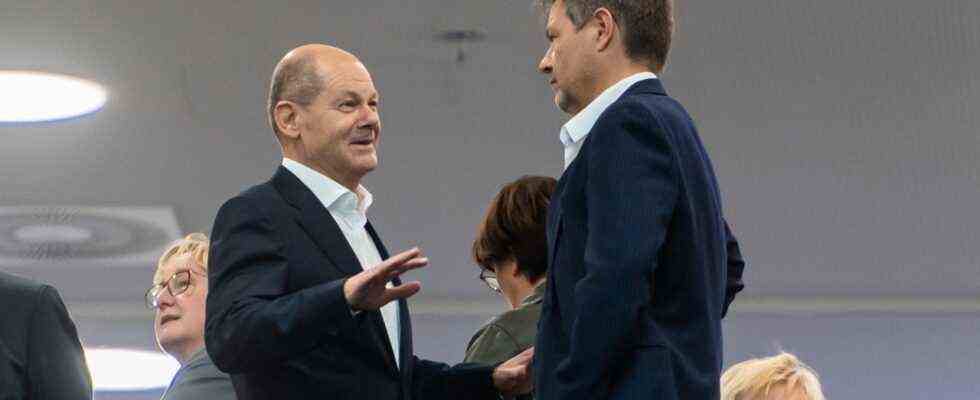Status: 10/25/2021 3:00 a.m.
The SPD candidate for chancellor and the chairman of the Greens currently see little chance of tax relief for small and medium incomes. There is no counter-financing, so the politicians at “Anne Will”.
According to the SPD chancellor candidate Olaf Scholz and Greens co-leader Robert Habeck, the relief of small and medium incomes through a tax reform is only possible with increasing tax revenues. Both politicians said on Sunday in the ARD-Show “Anne Will”, without the tax increases prevented by the FDP, there would be no room for maneuver. We will now see in the next four years what possibilities there are still.
At the same time, Scholz was convinced that the Federal Constitutional Court would not overturn the remaining solidarity allowance for higher earners. He is “as sure as you can be in court”. Habeck expressed himself more cautiously and pointed out that one had to wait for a decision from Karlsruhe. If the solos have to be completely abolished, experts expect a billion hole in tax revenue.
No corporate tax cut
“In this respect, there is not much movement in the area of financial policy, which includes taxes, that has to be said honestly,” said Habeck of the traffic light talks about tax reform. In the area of tax burdens and reliefs, the exploration between the three parties is “virtually undecided”.
Because of the resistance of the FDP and also the Union, the necessary votes in the Bundestag for a two-thirds majority, with which changes could be made to the debt limit set in the constitution, were missing. This limits the scope for new borrowing. In return, the FDP was unable to lower corporate taxes.
However, Scholz and Habeck referred to other agreed reforms and emphasized that, for example, the planned abolition of the EEG surcharge would also relieve private individuals and thus offset additional costs for higher energy prices. Scholz spoke of an amount of 300 euros for a family of four. He also referred to the planned increase in the minimum wage to twelve euros and the agreed increase in the limits of so-called midi jobs, from which lower incomes would benefit in particular.

